Hobbit Club Discussion Questions
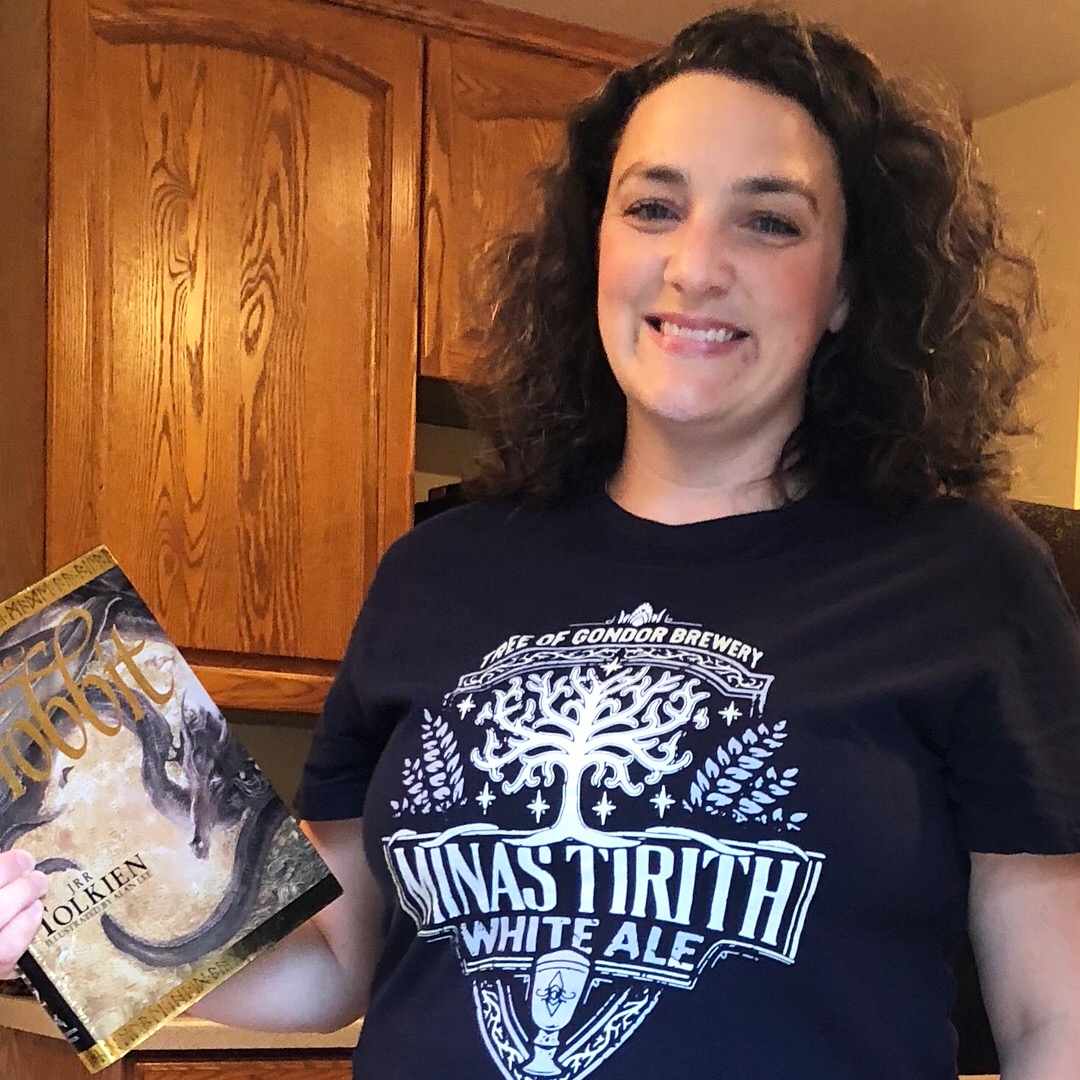
(July & August) The Hobbit
-
Tolkien, a master of words, uses the word ‘burglar’ to describe Bilbo. What does that mean?
-
How are Bilbo and Gollum alike?
-
How is Beorn like Lewis’s Aslan?
-
Isn’t it interesting that after their stay with Beorn, Gandalf tells the party that he will be leaving soon, very soon. Obviously this is like Christ’s comments to the Apostles. Why do Gandalf and Christ do this?
-
In Mirkwood forest, the enchanted stream is cursed. And yet, it is compelling and attractive. Sin is like this. From where does it get its power to attract us? Why did the party fall victim to it anyway?
-
When Gandalf leaves the party, a new leader emerges in the group. Discuss who and why.
-
The ancient feud between the dwarves and elves seems to mean something. If the elves are angel-like creatures and the dwarves are not demons, then why are they at war?
-
Why does the Elvenking imprison the dwarves? Why won’t Thorin tell the Elvenking what his mission is? What characteristics does his refusal reveal about him? Do you think these characteristics are true for all dwarves, or are they just true for Thorin?
-
Bilbo helps the dwarves to escape the Elven-King. How does this resonate with our discussion of burglary?
-
As the party nears the mountain, Thorin seems to be changing. What is causing his dragon-sickness to be amplified in this way?
-
Modern stories try to redeem dragons. Tolkien is very clear that the dragon archetype is totally evil. Who do you think is right? The moderns (My Father’s Dragon, How To Train Your Dragon, etc.) or Tolkien. Why?
-
Bilbo gives the Arkenstone to Bard and the Elvenking. How does this connect with our conversation about burglary?
-
Bilbo is pleased that he is “only quite a little fellow in a wide world after all!” (p. 305). Why is this a comforting perspective? How does viewing oneself as a small part of a larger whole impact the way a person interacts with the world around him?

(October) The Fellowship of the Ring, Book I: I-V
-
How did the Shire feel to you? Where can we find the Shire today?
-
Have you ever smoked a pipe or seen one smoked? The process of getting and keeping it lit is very involved and takes a great deal of patience. It is slow work. Everything in the Shire moves very slowly, even change. The hobbits travel mostly by foot or pony cart, they love to smoke pipes, and they even age slowly. What is Tolkien telling us about the pace of life?
-
Of course the Shire feels idyllic, and so the slow pace seems good to many of us. Maybe it is. But one of the reasons why we love Bilbo and Frodo (and Sam, Merry, and Pippin) is because of their willingness to change pace and embrace the adventure. How can we grab ahold of what they have – a love for tradition and peace while also going out to meet the challenge and exploring new ways of being?
-
When the “ring” shows up in our own lives, what things will help us in our journey to destroy it?
-
Why do you think it takes Frodo 17 years to leave the Shire after Bilbo leaves?
-
Frodo believes that Merry and Pippin do not know of his plans. But they do. What does it say about them that they allowed him to keep believing that his plans were secret and that they were making plans to go along with him?
-
Life transitions are often hard things. Frodo’s move from the Shire to his new home at Crickhollow is filled with interesting characters and seemingly useless details. Sometimes our lives feel like this – like we are in a holding pattern with nothing meaningful happening. And yet, there is something at work. What do you think is at work in these chapters?
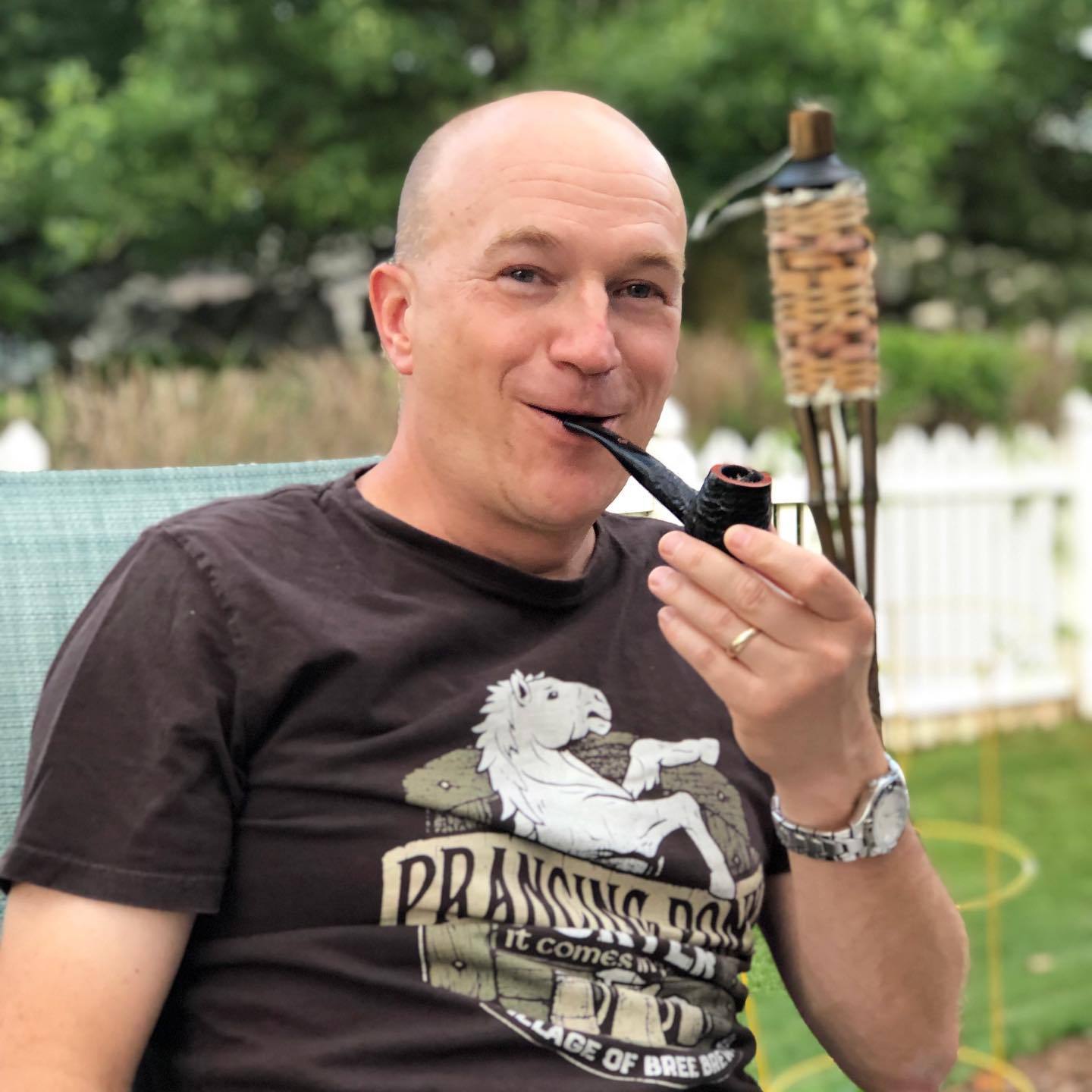
(November) The Fellowship of the Ring, Book I: V-XII
-
There is a lot of poetry in this story. Tom Bombadil sings. The elves sing. The Hobbits love music, and Sam write poetry. In The Screwtape Letters, C. S. Lewis writes that there is no music in hell. In The Silmarillion and in C. S. Lewis’s The Magician’s Nephew, both authors have their divine character “sing” creation into existence. Do you consider Tolkien’s writing musical? What part do you think music plays in our salvation today? What obligations do we have to make sure that the music in our lives is “good” music? What is “good” music? How do we know that it is good?
-
When Frodo has been wounded by the Black Rider, he realizes “that in putting on the Ring he obeyed not his own desire but the commanding wish of his enemies.” This is puzzling. How much does free will play into this? What was Frodo’s desire? Is it fair to say that he was not obeying his own desire when his desire was to be more powerful than his enemy so that he could be safe? Whose will was satisfied by his use of the ring?
-
The putting on of the ring is such a small act. At first, Frodo uses the ring only for his own protection or by accident. With each use, however, the ring becomes more his master. Sin is like this, obviously. What can we do to protect ourselves from the corrosive power of sin around us?
-
Aragorn and Boromir are at odds with each other. One is the rightful King and the other is the son of a dishonest steward. In the Gospel of Luke 16:1-13, “the master commended that dishonest steward for acting prudently.” How are the dishonest steward and Bormor alike and unlike? What do you think of Aragorn’s treatment of Boromir?
-
In reference to Merry and Pippin inserting themselves into everything, Gandalf says that trusting to friends is more prudent than adhering to wisdom. What does he mean by that? Is it true? How so? What is the real life application of that concept?

(December) The Fellowship of the Ring, Book II + “The Departure of Boromir” in The Two Towers
-
Catholic writers have compared Galadriel to the Blessed Mother. Does that work for you? What do you think?
-
Reflecting on the gifts that Galadriel gives to the Fellowship before they depart Lorien, does this inspire you to consider the Christmas gifts you give to loved ones in a different light?
-
In our Hobbit Club, the men generally preferred Boromir to Aragorn (and later Faramir and Eomer to Aragorn). The women had the opposite reaction. The men argued that Aargorn is too perfect and not at all realistic. They claim to understand Boromir and were cheering him on – especially at the end when he repents. What do you think? Is Boromir a good man? Is Aragron too perfect? What can we learn from Boromir?
- The orcs carry off Merry and Pippin. They have no idea that they have the wrong hobbit. Frodo and Sam have departed for another land so they can fight the bigger fight. Compare this to our rememberance of the Holy Innocents that Herod killed in his search for Christ.
-
Aragorn is faced with an awful decision: to pursue Frodo and Sam to serve as protector, to attempt to rescue Merry and Pippin, to fulfil his kingly role in gathering the forces for battle. Was there a wrong choice in there? How did he discern the “right” choice? How can we discern the “right” choice when we are facing similarly complicated decisions?
-
In Frodo’s Journey, Joseph Pearce suggests that there is a Davidic Priest-Prophet-King motif at work in The Lord of the Rings. While roles seems to shift a bit during the story, in this part of the book, Aragorn fulfills the priest archetype at Boromir’s death. We all passionately agreed that this is one of the very rare places where the movie does it better than Tolkien. The sacramental nature of what is going on is obvious in the text, but it is even more so in the movie. What do you think?
-
In this clip, Boromir dies valiantly trying to protect the innocent hobbits. It is obvious that he knows that it was his folly (sin) which summoned the Orcs (by forcing Frodo to put the ring on), so he is attempting to atone for the sin he repents of. When he falls, he falls in a kneeling posture. Aragorn arrives in time to save Boromir from a death blow from the demonic Uruk Hai and then battles the demon in much the same way that a priest helps us to battle our demons in the confessional. Note, it was Boromir’s act of will and his persistence in fighting while dying that solicits the spiritual support of Aragorn. You can watch here: https://www.youtube.com/watch?v=sqjfq5gsfYk
-
Boromir tells Aragorn what he did, that he is sorry for it, and that his death is his payment for it. He confesses, he indicates genuine sorrow, and he accepts satisfaction in his penance.
-
After Boromir laments his failure, Aragorn takes his hand, kisses his brow and responds with words of comfort and absolution: ‘No! You have conquered. Few have gained such a victory. Be at peace! Minas Tirith shall not fall!’
-
-
As Boromir hears Aragorn’s words, he smiles. It is his last act before he dies.
Clearly, the conquest and victory Aragorn speaks of must be the spiritual victory over sin because, in a purely worldly sense, Boromir has indeed failed… In Christian terms, however, having made such a contrite confession of sin and having paid by laying down his life for his friends, he has indeed conquered and won a great victory (though it requires the grace of God represented symbolically by the presence of Aragorn in persona Christi, serving as a figure of Christ whose absolution ‘Be at peace!’ confirms the conquest of evil and the victory Boromir has won). – Joseph Pearce: Frodo’s Journey
Here is the clip: https://www.youtube.com/watch?v=9skYkQfAwus
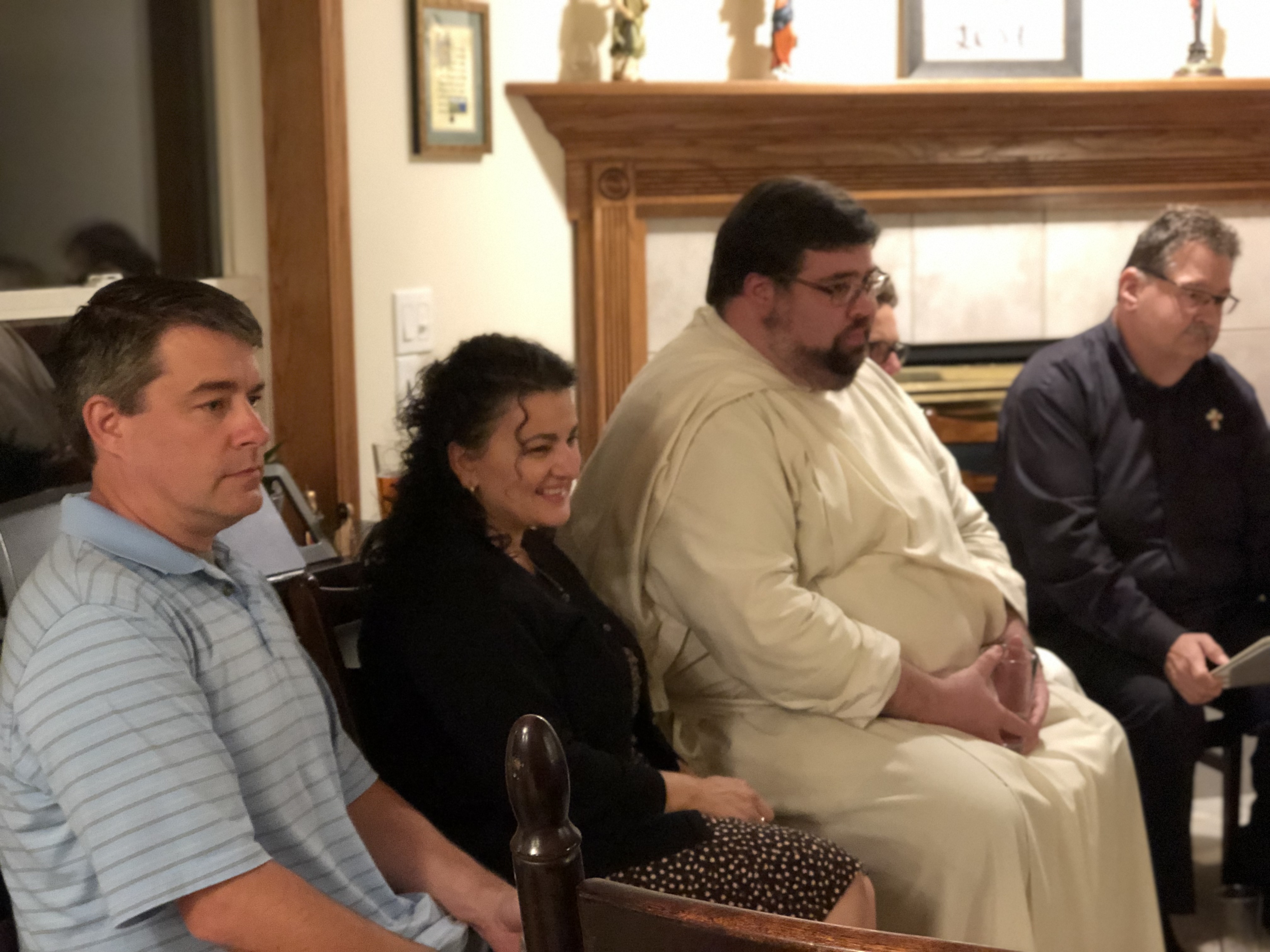
(January) The Two Towers, Book III
-
Treebeard is a reluctant hero. It seems that men of goodwill could not have motivated him to move, but innocent hobbits did. What was it about their relationship that allowed them to find Treebeard’s source of motivation? Why is innocence so winning? Were the hobbits innocent in their methods or perhaps also a bit cunning?
-
What are the Ents in our lives?
-
Gandalf’s return to Aragorn, Gimli, and Legolas is strikingly familiar to Christ’s appearance on the road to Emmaus. What causes them to be able to finally recognize Gandalf? Why do you think that Tolkien wrote it this way?
-
Eomer and Eowyn are deeply loyal and serving a lord they loved. Theoden has fallen victim to Wormtongue’s dark power and, for the moment, good seems to be losing the battle. But where there is life there is hope. Talk about Eomer and Eowyn’s sacrifices, their obedience, and their hope.
-
The relationship between Theoden and Aragorn is fascinating. Aragorn, the high king, the most valuable man in Middle Earth, is eminently noble and virtuous. Honorable always, he treats Theoden with reverence while seeking to protect the venerable old king. Here, we think that the movie gets it all wrong. Theoden is portrayed as being weak and Aragorn as a bully. The book so clearly shows us that Theoden is noble and courageous, but being restrained by younger men (Aragorn included) who seek to protect him. It was a beautiful portrayal of a father-son-like relationship. What do you think?
-
One more of those rare scenes where the movie changes the book but does in a way that is absolutely wonderful: the arrival of the elves at Helm’s Deep. We think that the spiritual interplay is perfect here. Aragorn suiting up for battle looks like the Christian soldier who is putting on the armor of God. As he does so, the horns of the elves are heard and his spirit is renewed. We think we know why Tolkien did not include the elves in Helm’s Deep, but we love to see them there anyway. Seeing elves in that dark place reminds us that angels do battle around us all day long. This scene is fantastic for a visual of spiritual warfare. https://www.youtube.com/watch?v=51BE_zrpyoU
-
At Isengard, Merry and Pippin prove themselves to be complex and fascinating. Their greeting of the Fellowship at Isengard reveals both a perpetual innocence and a deepening maturity.Greeting their companions with pipeweed and good food, these two hobbits always remind the group of the need for fellowship, in spite of the war raging around them.

(February) The Two Towers, Book IV
-
In “The Taming of Smeagol,” Sam and Frodo must descend a cliff in Emyn Muil. Tying the rope from Galadriel around a rock, the are able to climb down. Alas, Sam is reticent to leave the rope there because he does not want Smeagol to follow them, and he hates to part with a gift from The Lady. Crying out that if only she could spare him having to leave it, he gives one final tug and the rope comes tumbling down. Unfrayed and perfect, Sam concludes that Galadriel herself must have untied his knot. Pearce and others have noticed the similarity here with Our Lady Undoer of Knots. The problem of leaving the rope as well as the lurking Smeagol are both “knots” in this journey that must be undone by something bigger than themselves. Does she undo the knot for Sam? What other knots could she have undone for them over the course of their adventure?
-
Smeagol/Gollum is a character with many layers. He killed in order to take possession of the ring, so his relationship with the ring is disordered from the beginning. Perhaps he was more susceptible to the temptations of the ring because he wasn’t a proper hobbit, but one of the Lake Town people who are sort of half-way between innocent hobbits and sophisticated full men. Throughout this portion of the book he calls Frodo “master.” Who is calling Frodo master? Gollum or Smeagol? How is Frodo’s presence changing Gollum? While it can be argued that Frodo is raising Gollum up, Gollum is also dragging Frodo down. Gollum’s anger, greed, and brokenness are making the journey more tedious and more treacherous, and are causing a fracture in the otherwise solid relationship between Sam and Frodo. Was Frodo right to let Gollum walk this path in the hopes that Smeagol could be saved?
-
Why are Faramir and Boromir so different? Boromir strove to please his father, but Faramir somehow knows better than to play that game. Why or how do you think that is?
-
What does the “stewardship” of Minas Tirith mean? How hard would it be to have all of the responsibility, small authority, but no ultimate authority? Can this be compared to parenting? God gives our children into our stewardship for a time. Ultimately, however, God willing, their love for us will be eclipsed by their love for their true King, Jesus Christ. Faramir seems to understand this. His men belong to him only until the High King has need of them.
-
Wormtongue had Theoden under a spell of madness. But what about Denethor? Is he under a spell? Is he mad? Is he merely cunning and playing a part? Who is accountable for Theoden’s madness – Wormtongue or Theoden’s allowing wickedness into his court? Who is accountable for Denethor’s madness? How does free will factor into both of these men’s lives?
-
In The Fellowship of the Ring, Elrond says, “…nothing is evil in the beginning. Even Sauron was not so.” If Saurman, Denethor, and Theoden can all be corrupted, what chance does anyone else have of standing up to evil? How does Aragorn stay pure hearted?
-
Sam thinks that Faramir reminds him of Gandalf. What do you think of that? What do they have in common? How do their roles overlap? If Gandalf is the “Prophet” in the Priest-Prophet-King motiff, does that make Faramir a prophet of sorts?
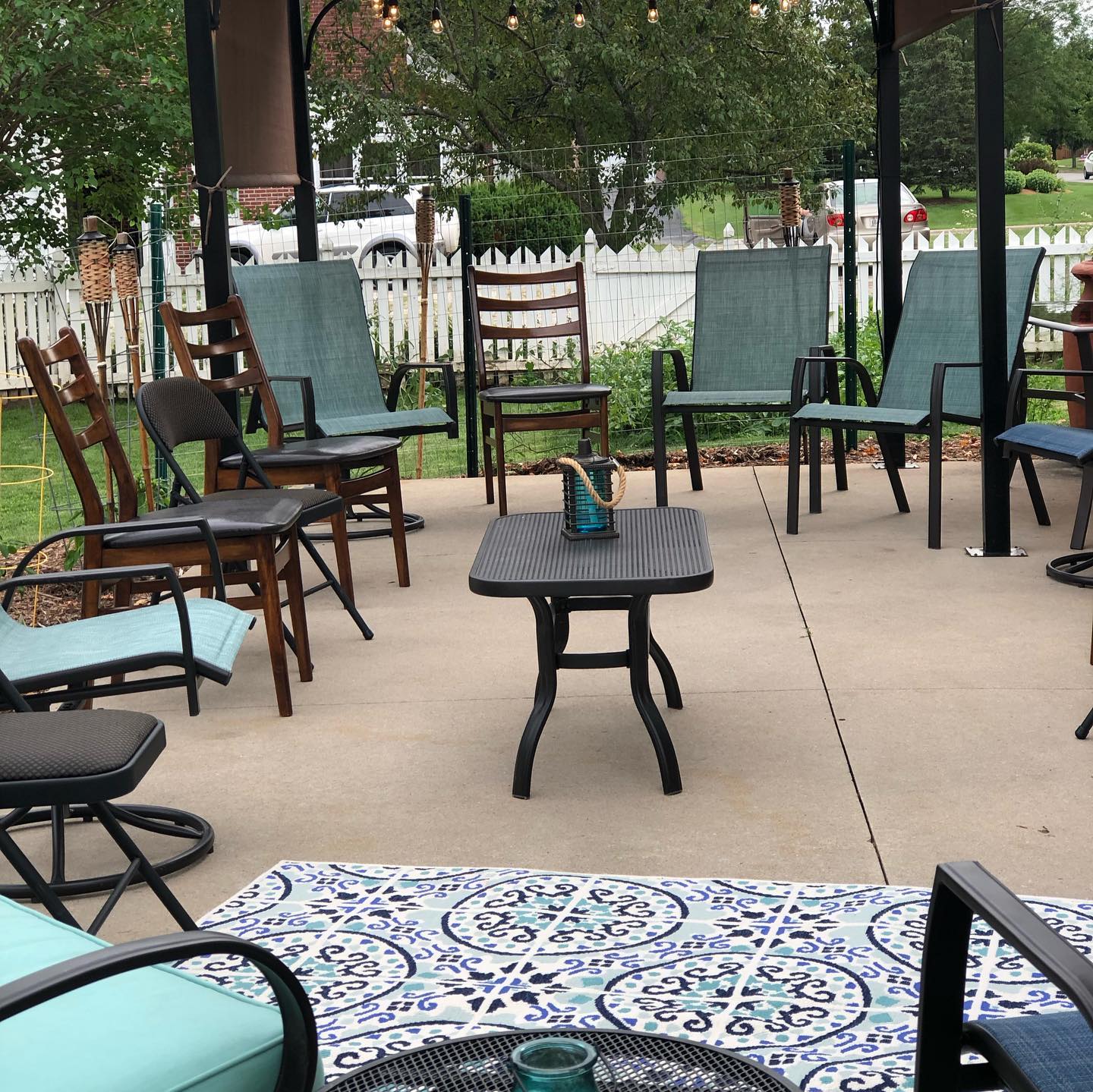
(March) The Return of the King, Book V
-
Gandalf must know that Denethor is broken if not mad. Why does he trust Pippin into his care? Why does he permit Pippin to swear fealty to Denethor? What does this reveal about how Pippin has matured? And what does this say about how high the stakes are?
-
The relationship between Denthor and Faramir is tragic. (As was Denethor’s relationship with Boromir.) Not all of us have good earthly fathers and not all of us are always good earthly parents. Obviously we can see this as a cautionary tale, but more than that, what can we learn from Faramir’s honoring of his father even when his father was such a discouraging father?
-
The palantir is a perplexing device. Used improperly, it can cause great harm. Aragorn, however, is its rightful master, and can force it to do his will. But in bringing the palantir to his control it exposed the Ranger as the rightful heir of Isildur. The palantir in the hands of evil or uninitiated (like Pippin) is an agent for woe – like stolen Eucharist used in a Black Mass. But, the Eucharist or Sacramental Oil used by a priest in the service of God can work incredible miracles. Compare Aragorn to priests in hiding during times of persecution. As men, they are able to hide. In the saying of mass or administering of sacraments, however, their true identity is exposed.
-
“It is best to love first what you are fitted to love, I suppose,” says Merry; “you must start somewhere and have some roots” (p. 852). What does this mean?
-
The Witch King of Angmar, the Lord of the Nazgul, is defeated by a woman – Eowyn. Going back to our question from The Hobbit about Tolkien’s view of the dragon archetype, does this suggest a connection between Mary crushing the head of the serpent?

(Holy Week) The Return of the King, Book VI: The Tower of Cirith Ungol – Mount Doom
-
“No, they eat and drink, Sam. The Shadow that bred them can only mock, it cannot make: not real new things of its own. I don’t think it gave life to the orcs, it only ruined them and twisted them; and if they are to live at all, they have to live like other living creatures.” – Frodo to Sam, Return of the King, Book VI: Chapter 1. If the Orcs, Nazgul, Saruman, and Gollum were all regular living creatures before the Shadow twisted them, does that mean they are still capable of redemption? Is conversion still possible to them?
-
Compare that idea to the Grey Company of dead men that Aragorn commanded in the last book. When was their free will lost? Did they still possess any free will at all? Is redemption possible for them?
-
The idea of syncing these books with the liturgical calendar gained traction with Catholic readers because of Tolkien’s explicit acknowledgement that the destruction of the ring is on the same date as the Feast of the Assumption and the historical date of the crucifixion of Christ. Does it work for you? Does this feel like a Good Friday read to you?
-
As Frodo climbs Mount Doom, he is unable to continue without help. Sam functions like Simon Cyrene. But does he serves in another role as well? That of deacon? If Frodo is the priest in the Priest-Prophet-King idea, taking the cross for all of us on his back as he ascends to the altar of sacrifice, the helper who accompanies and aids him is the deacon. In what other ways is Sam like a deacon?
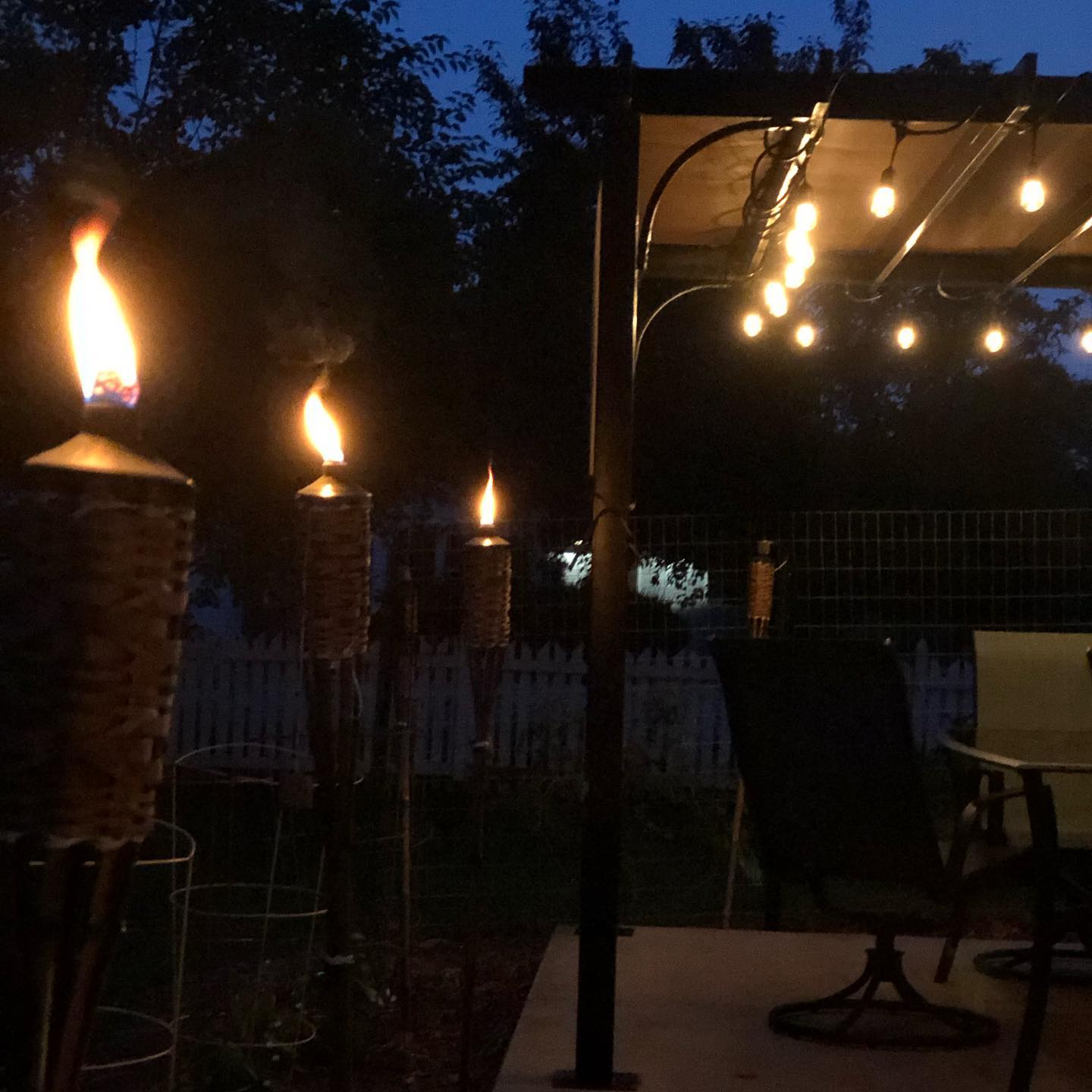
(Easter Season/Ascension) The Return of the King, Book VI
-
The destruction of the ring signals the victory. It strikes at the heart of darkness. However, there is still much left to be done. After His resurrection, Christ spent many days with His disciples because they were still not ready for Him to leave. How, in this season, can we join with those disciples in their celebration of victory and their preparation to be parted from Him?
-
Once Aragorn is crowned king, he makes Faramir the “Prince of Ithilien,” and retains him as steward. What does it mean to be a steward to a living enthroned High King?
-
When the hobbits return to the Shire, they are shocked to discover that even though they defeated the “big evil,” their Shire was invaded by little devils. Incredulous and indignant, Merry and Pippin intuitively understand that they have grown a little taller and a little bolder for a time such as this. Exhausted, Sam too understands the need to fight, but his motivation is more personal. Sam, like the true soldier, is called to battle because he loves what he is protecting. Merry and Pippin are also motivated by love, but more so by a sense of purpose. Frodo, however, has no stomach for the fight at all. Such different perspectives! Whose position most resonates with you?
-
Galadriel’s gift to Sam seemed useless in his journey. And, maybe even a little bit of a burden when he had so many things to carry. Once the Shire has been reclaimed, however, that gift proved to be essential. How did she know? Can she see the future? Is she a prophet?
Click here to see the Schedule and Rationale Post
Click here to see the schedule in a printable format.
Click here to see the discussion questions in a printable format, click here.
Click here to see recipes and helpful links.